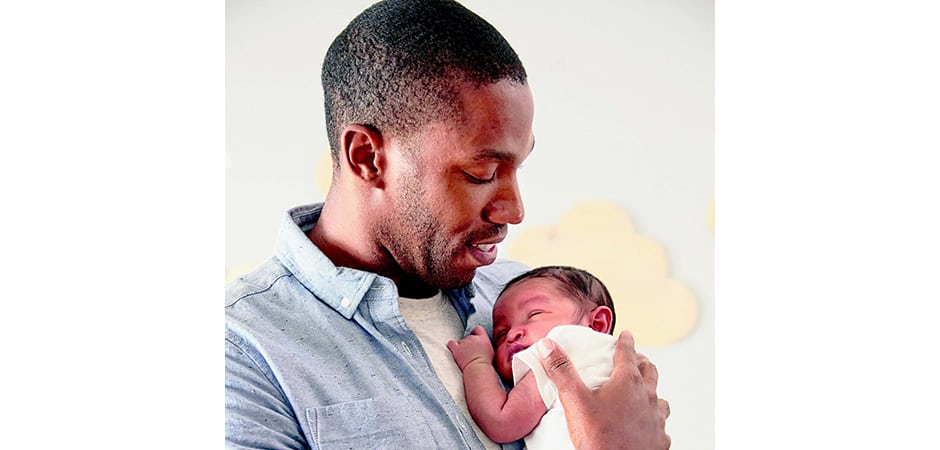
[This piece was written by Carla Barberis-Ryan, MHSA, MSN, RN, NE-BC, Director, Women’s & Children’s Services at St. Peter’s Hospital.]
The times are long gone when expectant fathers would pace the waiting room at the hospital, wait anxiously for news from the delivery room, and then hand out cigars once he had been declared a new dad by the doctor or nurse.
Today, most dads actively support their partner throughout the pregnancy and most are present in the delivery room during the birth. World Health Organization reports that women who have continuous support during childbirth, including encouragement from their primary partner, tend to have easier deliveries with improved health outcomes for the baby.
Because pregnancy can be both exciting and confusing, here are some tips for fathers-to-be:
- Early pregnancy (up to 14 weeks): Pregnancy is different for every woman. Some early signs include nausea, extreme fatigue, frequent urination, headache, heartburn, sensitivity to odors and light-headedness. Dads can help by shouldering more of the household chores and being more available.
- Middle period (weeks 14-28): As the baby begins to develop, it’s the most enjoyable and exciting time for you both. During this time, the pregnancy becomes obvious as mom begins to “show.” Mom will begin to feel the baby move and the reality that your lives are about to change hits. This is a great time to start a journal.
- Late pregnancy (weeks 29-40): The mom-to-be is likely uncomfortable again, as her body prepares for birth. Back pain is common. It’s normal for both parents to be both excited and fearful about the approaching birth. Dad will be able to feel (and sometimes see) the baby’s kicks through mom’s abdomen.
When the grand day arrives and labor begins, it’s time for dad to go into super support mode. Movement is an important part of a healthy labor, so dad can assist mom by lending stability as she walks the halls, stretches on a birthing ball, or prepares for a change in position.
During labor, dad can also help by timing his partner’s contractions, rubbing her back, and helping her with breathing techniques. Sharing the excitement creates a lifelong, joyful memory.
Taking the baby home marks a new chapter. During this postpartum period (about six weeks), the new mom may be uncomfortable as her body recovers. Creating a welcoming, stable environment for family bonding is where dad can really step up. Dad’s emotional support is crucial during this time, as new moms may develop a mild case of the “baby blues.” Dad should be in tune for cues that can signal a more serious postpartum depression, and be ready to get mom the medical assistance she may need.
Earlier this year, St. Peter’s received the 2018 Women’s Choice Award as one of America’s Best Hospitals for obstetrics for the fourth consecutive year. This follows last year’s recognition as an international “Baby-Friendly” hospital, with St. Peter’s being the first in the Capital Region to earn the designation.
For information on delivering a baby at St. Peter’s Hospital, as well as information on parenting classes, infant care, breastfeeding, or placental donation, please call 518-525-1388 or visit http://www.sphcs.org/WomensHealth






